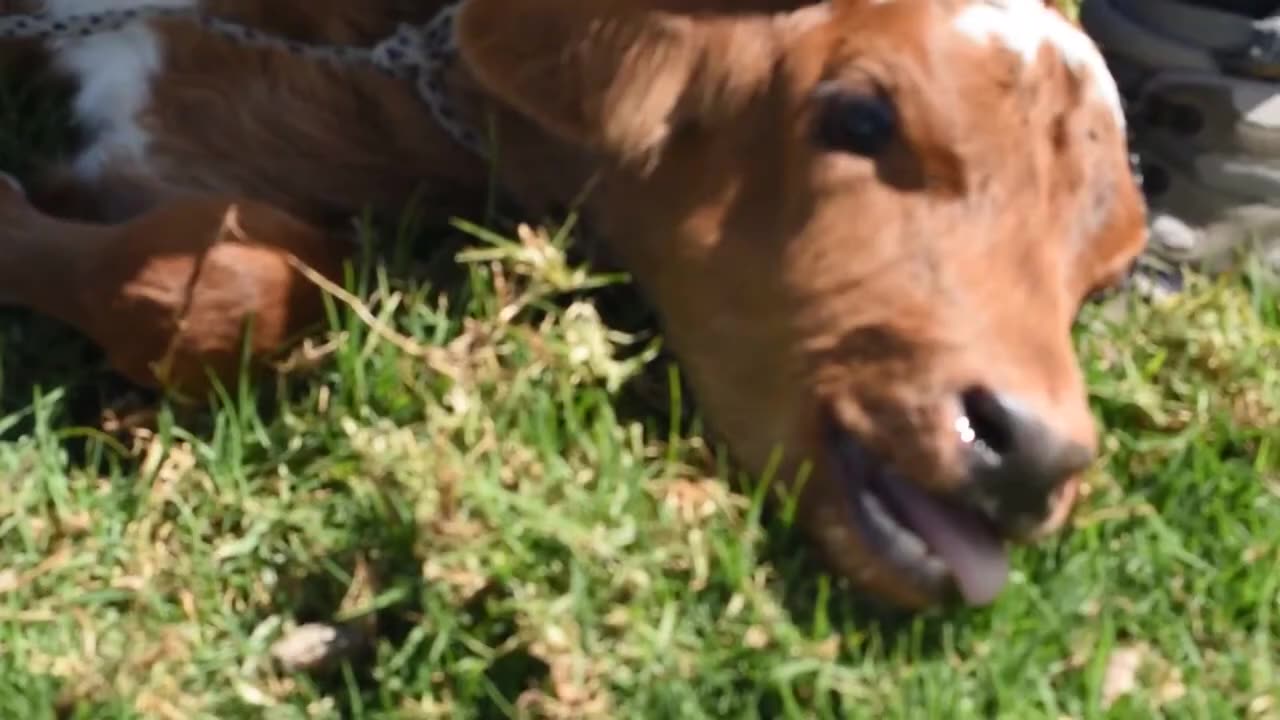Premium Only Content

The Hidden Suffering in Cattle Farming
Cattle farming suffering is a significant issue in the livestock industry, where animals often endure harsh conditions and inhumane treatment. In many large-scale cattle farms, the primary focus is on maximizing productivity and profit, often at the expense of the animals' well-being. Cattle are frequently confined in overcrowded feedlots with little room to move, leading to stress and increased susceptibility to diseases. These unsanitary conditions can cause infections and other health problems, exacerbating the suffering of the animals.
One of the most distressing aspects of cattle farming suffering is the lack of adequate veterinary care. Preventative measures and treatments are often minimal to reduce costs, leaving many animals to suffer from untreated illnesses and injuries. Additionally, painful procedures such as dehorning, castration, and branding are commonly performed without anesthesia, causing significant pain and distress to the animals.
The diet and feeding practices in industrial cattle farming also contribute to their suffering. Cattle are often fed a diet high in grains and low in natural forage, which can lead to digestive problems, including acidosis and bloating. These conditions are not only painful but can also be fatal if not properly managed. Furthermore, the use of growth hormones and antibiotics to promote rapid weight gain can have adverse effects on the animals' health, leading to further suffering.
Transport and slaughter processes add another layer to cattle farming suffering. During transportation, cattle are often subjected to long journeys without sufficient food, water, or rest, leading to exhaustion, dehydration, and injuries. At slaughterhouses, the methods used to kill the animals are not always humane, resulting in additional stress and pain.
Cattle farming suffering highlights the need for more humane and sustainable practices in the industry. Improving living conditions, providing proper veterinary care, and adopting humane handling and slaughter techniques are essential steps to reduce the suffering of cattle and ensure their well-being. Increasing awareness and demand for ethically produced meat can also drive changes towards more compassionate farming practices.
Website: https://cruelty.farm
-
 LIVE
LIVE
LFA TV
15 hours agoLFA TV - ALL DAY LIVE STREAM 4/18/25
8,624 watching -
 LIVE
LIVE
IsaiahLCarter
15 hours agoApostate Radio #010: Jacob Urovsky Professor of Disaffection, Joshua Slocum
166 watching -
 LIVE
LIVE
The Shannon Joy Show
1 hour ago🔥🔥Debt And Slavery … How To Stay FREE Amidst The Coming Plunder & Economic Crisis. LIVE With America’s Friendliest Billionaire Bonk Da Carnivore🔥🔥
300 watching -
 LIVE
LIVE
Film Threat
23 hours agoSINNERS + CRONENBERG'S THE SHROUDS + TONS OF REVIEWS | Film Threat Livecast
193 watching -
 LIVE
LIVE
Tudor Dixon
3 hours agoWalking with Jesus: A Holy Week Journey with Jeff Cavins | The Tudor Dixon Podcast
222 watching -
 1:04:20
1:04:20
VINCE
3 hours agoSomething Serious Is Going On Behind The Scenes | Episode 25- 04/18/25
156K182 -
 LIVE
LIVE
Caleb Hammer
1 hour agoFinancial Audit’s Thirstiest Guest
183 watching -

The Big Mig™
4 hours agoEx-CIA & Founder of Panquake, John Kiriakou
20.1K3 -
 LIVE
LIVE
Viss
2 hours ago🔴LIVE - Taking Wins all Over The PUBG Battleground!
176 watching -
 6:23
6:23
Talk Nerdy Sports - The Ultimate Sports Betting Podcast
2 hours agoGood Friday, Bad News for the Books: Riste’s Cold-Blooded Card
7.99K2